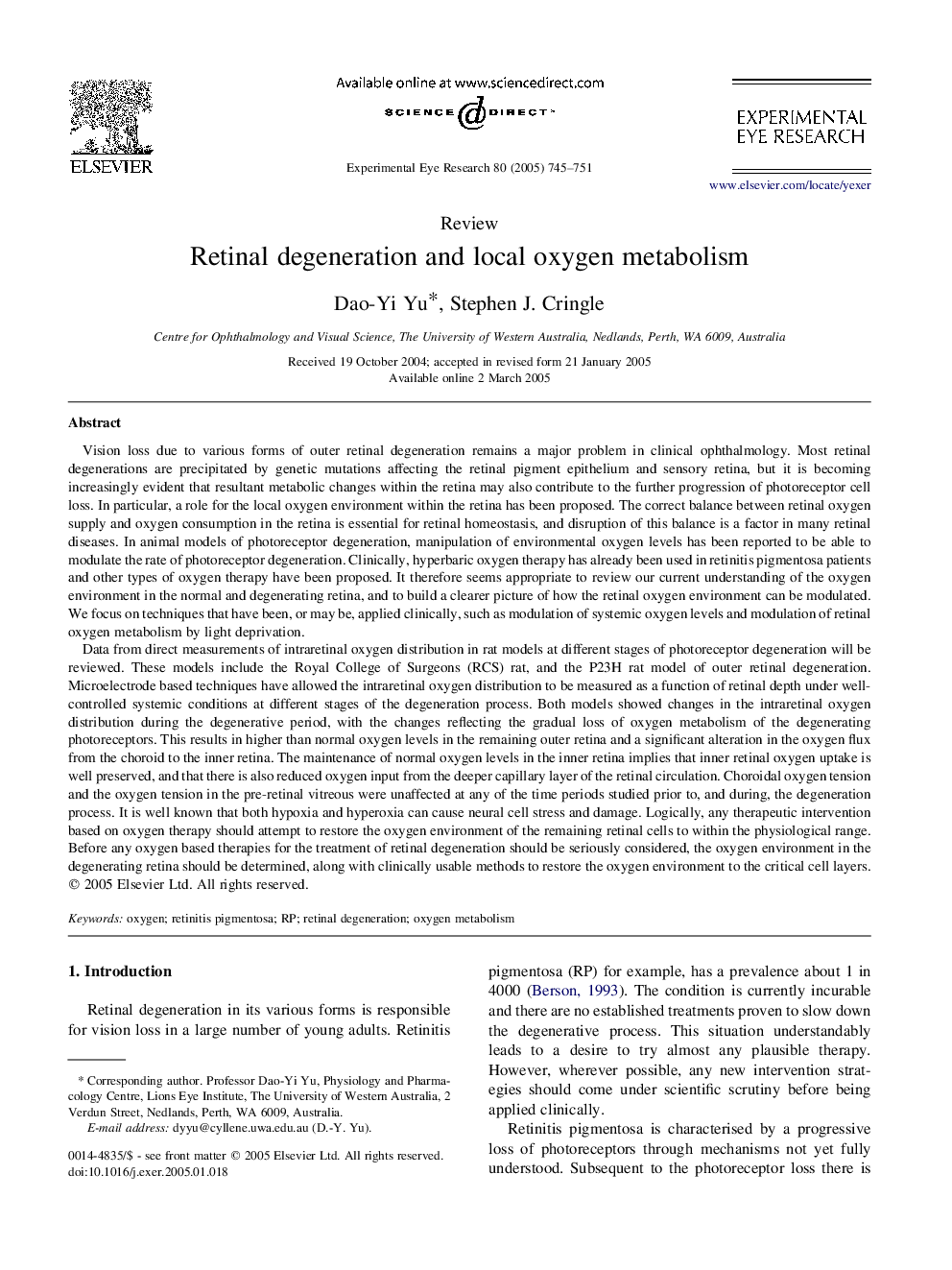| Article ID | Journal | Published Year | Pages | File Type |
|---|---|---|---|---|
| 9341474 | Experimental Eye Research | 2005 | 7 Pages |
Abstract
Data from direct measurements of intraretinal oxygen distribution in rat models at different stages of photoreceptor degeneration will be reviewed. These models include the Royal College of Surgeons (RCS) rat, and the P23H rat model of outer retinal degeneration. Microelectrode based techniques have allowed the intraretinal oxygen distribution to be measured as a function of retinal depth under well-controlled systemic conditions at different stages of the degeneration process. Both models showed changes in the intraretinal oxygen distribution during the degenerative period, with the changes reflecting the gradual loss of oxygen metabolism of the degenerating photoreceptors. This results in higher than normal oxygen levels in the remaining outer retina and a significant alteration in the oxygen flux from the choroid to the inner retina. The maintenance of normal oxygen levels in the inner retina implies that inner retinal oxygen uptake is well preserved, and that there is also reduced oxygen input from the deeper capillary layer of the retinal circulation. Choroidal oxygen tension and the oxygen tension in the pre-retinal vitreous were unaffected at any of the time periods studied prior to, and during, the degeneration process. It is well known that both hypoxia and hyperoxia can cause neural cell stress and damage. Logically, any therapeutic intervention based on oxygen therapy should attempt to restore the oxygen environment of the remaining retinal cells to within the physiological range. Before any oxygen based therapies for the treatment of retinal degeneration should be seriously considered, the oxygen environment in the degenerating retina should be determined, along with clinically usable methods to restore the oxygen environment to the critical cell layers.
Related Topics
Life Sciences
Immunology and Microbiology
Immunology and Microbiology (General)
Authors
Dao-Yi Yu, Stephen J. Cringle,
